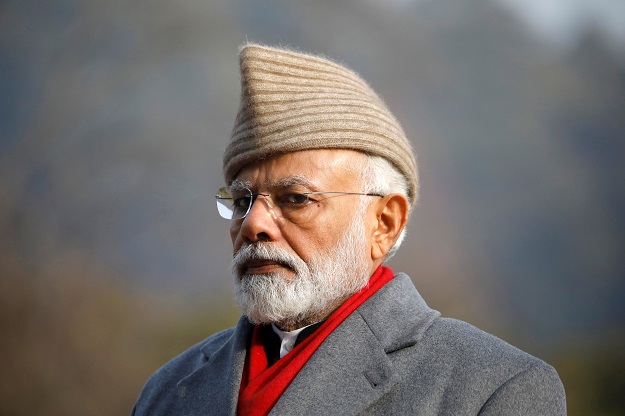India has shot down a satellite in space with an anti-satellite missile, Prime Minister Narendra Modi said on Wednesday, hailing the test as a major breakthrough in its space program.
Modi made the announcement in a television address to the nation. He said India would only be the fourth country to have used such an anti-satellite weapon after the United States, Russia and China.
Such capabilities have raised fears of the weaponisation of space and setting off a race between rival powers.
“Some time ago, our scientists, shot down a live satellite 300 kilometres away in space, in low-earth orbit,” Modi said, calling it a historic feat.
“India has made an unprecedented achievement today,” he said, speaking in Hindi. “India registered its name as a space power.”
Modi faces a general election next month. He went on Twitter earlier to announce his plan for a national broadcast, saying he had an important announcement to make.
India has had a space programme for years, making earth imaging satellites and launch capabilities as a cheaper alternative to Western programmes.
Brahma Chellaney, a security expert at New Delhi’s Centre of Policy Research, said the United States, Russia and China were pursuing anti-satellite(ASAT) weapons.
“Space is being turned into a battlefront, making counter-space capabilities critical. In this light, India’s successful “kill” with an ASAT weapon is significant.”
No comment was immediately available from old rival Pakistan. There was also no immediate reaction from China’s foreign or defence ministries.
China destroyed a satellite in 2007, creating the largest orbital debris cloud in history, with more than 3,000 objects, according to the Secure World Foundation.
Ajay Lele, a senior fellow at the government-funded Institute for Defence Studies and Analyses in New Delhi, said India was spurred into the anti-satellite programme by China’s test.
Indian defence scientists have sought political approval for live tests but successive governments had baulked, fearing international condemnation, an Indian defence official said.
The United States performed the first anti-satellite test in 1959, when satellites themselves were rare and new.
Bold Orion, a nuclear-tipped ballistic missile repurposed to attack satellites, was launched from a bomber and passed close enough to the Explorer 6 satellite that it would have been destroyed if the nuclear warhead had been live.
The Soviet Union performed similar tests. In the 1960s and early 1970s, it tested a weapon that would be launched into orbit, approach enemy satellites and destroy them with an explosive charge, according to the Union of Concerned Scientists.
In 1985, the United States tested the AGM-135, launched from an F-15 fighter, destroying an American satellite called Solwind P78-1.
There were no tests for more than 20 years, until 2007, when China entered the anti-satellite arena.
The next year, the United States carried out Operation Burnt Frost, using a ship-launched SM-3 missile to destroy a defunct spy satellite.
But Modi who is heading a Hindu nationalist-led government has taken a consistently strong position on national security, launching air strikes last month on a suspected militant camp in Pakistan that led to retaliatory raids by Pakistan in a dramatic ratcheting up of tensions between the nuclear-rivals.
Lele said India had in all likelihood destroyed its own satellite in the three-minute test conducted on Wednesday.
“India has used a missile that had no warhead, so there is only a metal strip on top of the missile or a metal part and the missile shoots that metal into space, and because of the impact a kinetic energy gets generated that creates further impact,” he said.
Tensions between India and Pakistan remain high. India’s big concern is China’s defence assistance to Pakistan including in its missile programmes and analysts say the fear is that Islamabad turns to Beijing for help to neutralise any Indian advantage such as the latest test in space capabilities.
“I don’t think Pakistan has acquired that level of accomplishment yet by itself, but Pakistan is no longer seen alone,” said Uday Bhaskar, director of Society for Policy Studies, another Delhi think-tank.
“Pakistan and China have a very deep strategic kind of partnership. So some kind of sharing of capabilities can’t be ignored.”









